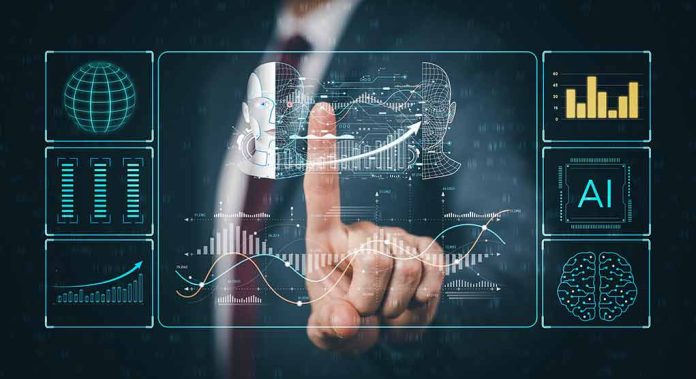
A North Carolina mother credits AI chatbot ChatGPT with saving her life after it identified a medical condition that doctors missed, leading to her cancer diagnosis and life-saving treatment.
Key Takeaways
- Lauren Bannon, a mother of two, turned to ChatGPT for answers after doctors misdiagnosed her symptoms as rheumatoid arthritis and acid reflux.
- ChatGPT suggested Hashimoto’s disease as a possible diagnosis, which testing later confirmed and led to the discovery of cancerous tumors.
- Bannon underwent surgery to remove her thyroid and two lymph nodes after the AI-prompted diagnosis revealed cancer.
- Medical experts acknowledge AI can be a valuable supplementary tool but emphasize it should not replace professional medical care.
- Bannon’s case highlights the potential for AI to empower patients when traditional healthcare pathways fall short.
When Doctors Couldn’t Find Answers, AI Offered Critical Insight
Lauren Bannon, a mother of two from North Carolina, found herself in a desperate situation when her health began deteriorating. She experienced difficulty bending her fingers, severe stomach pains, and an alarming 14-pound weight loss in just one month. Despite multiple doctor visits, medical professionals initially diagnosed her with rheumatoid arthritis and acid reflux, even though tests for rheumatoid arthritis came back negative. Frustrated by the lack of answers and deteriorating health, Bannon took an unconventional approach that would ultimately save her life.
“I felt let down by doctors. It was almost like they were just trying to give out medication for anything to get you in and out the door,” said Bannon.
Facing mounting health concerns and inadequate medical answers, Bannon turned to ChatGPT, an artificial intelligence chatbot. She entered her symptoms into the AI system, which suggested she might have Hashimoto’s disease, an autoimmune condition affecting the thyroid. This suggestion was something no healthcare provider had previously considered. Armed with this new information, Bannon returned to her doctor and insisted on testing for the condition, despite initial resistance from medical staff who were skeptical about a diagnosis originating from an AI tool.
Woman says ChatGPT saved her life by helping detect cancer, which doctors missed https://t.co/op5H2SmiBc
— Fox News (@FoxNews) April 24, 2025
AI-Prompted Testing Reveals Cancer Diagnosis
The test results confirmed what ChatGPT had suggested – Bannon did indeed have Hashimoto’s disease. However, the diagnostic journey didn’t end there. During follow-up care, an ultrasound revealed two small cancerous lumps in her neck, leading to a cancer diagnosis that might have gone undetected without the initial Hashimoto’s discovery. The prompt diagnosis allowed for quick medical intervention, with Bannon undergoing surgery to remove her thyroid and two lymph nodes. She will continue to be monitored for cancer recurrence.
“I needed to find out what was happening to me, I just felt so desperate. I just wasn’t getting the answers I needed,” Bannon explained.
Bannon believes that without ChatGPT’s suggestion, her cancer might have remained undetected for a dangerous period. Her case was particularly challenging because she lacked many of the typical symptoms associated with Hashimoto’s disease, making it difficult for doctors to identify the condition through traditional diagnostic methods. The AI system’s ability to recognize patterns across vast datasets of medical information proved invaluable in connecting her unusual symptom presentation to the underlying condition.
The Proper Role of AI in Modern Healthcare
While Bannon’s story highlights the potential benefits of AI in healthcare, medical professionals caution that such tools should supplement rather than replace professional medical care. Dr. Harvey Castro, who specializes in the intersection of AI and healthcare, supports AI’s role in creating awareness and prompting action but emphasizes its limitations. Bannon herself encourages others to use AI tools like ChatGPT for health inquiries while advising caution and continued consultation with medical doctors.
“AI is not a replacement for human medical expertise. These tools can assist, alert and even comfort — but they can’t diagnose, examine or treat,” said Castro.
Bannon’s experience represents a shift in how patients can participate in their healthcare journey. For Americans facing similar challenges with getting accurate diagnoses, AI tools offer an additional avenue for gathering information that might lead to better health outcomes. As AI technology continues to advance, cases like Bannon’s suggest an evolving partnership between artificial intelligence applications and traditional healthcare providers, with the ultimate goal of empowering patients with knowledge and facilitating timely medical interventions.









